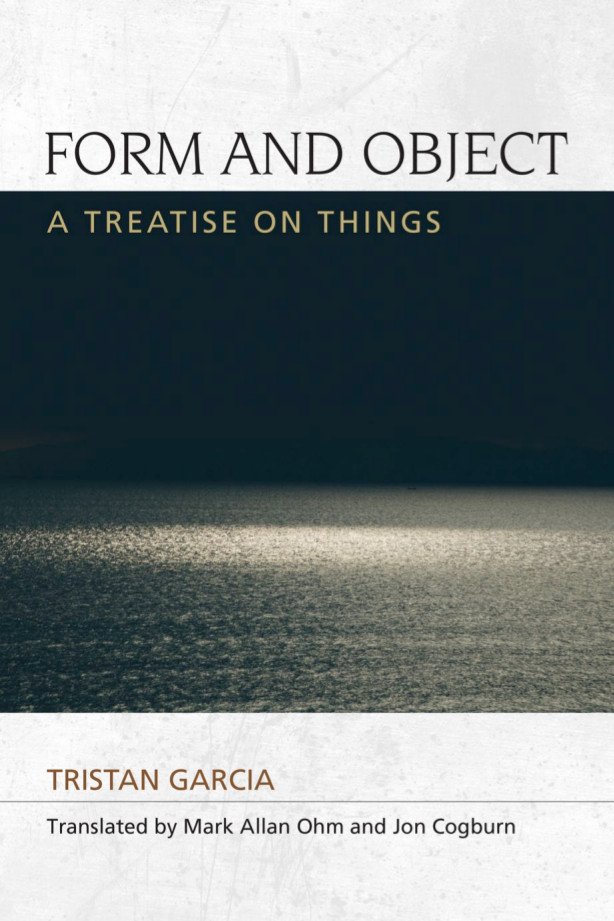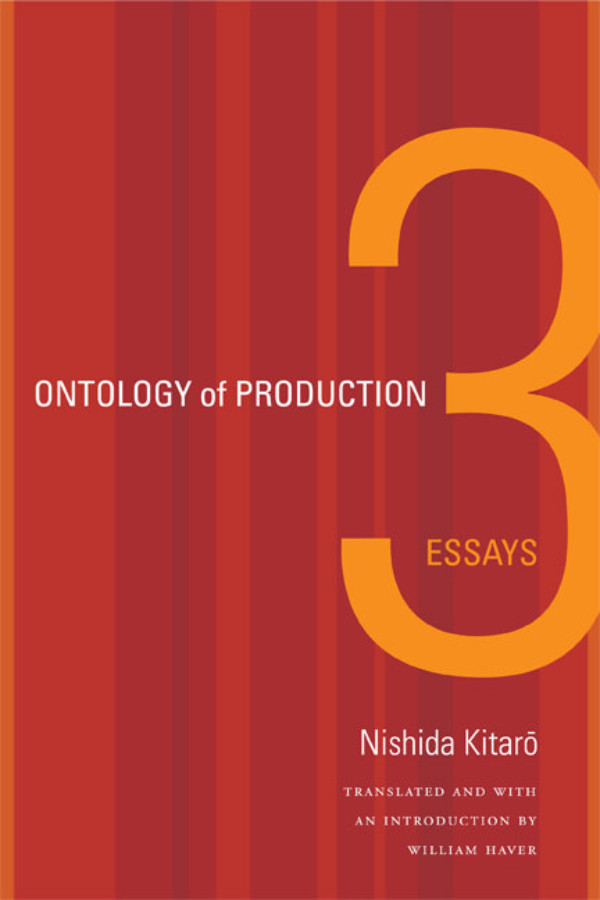Tristan Garcia: Form and Object: A Treatise on Things (2011–)
Filed under book | Tags: · animal, art, being, body, culture, economy, event, evolution, form, gender, human, knowledge, life, metaphysics, nature, nothing, object, ontology, philosophy, relation, representation, self, thing, time, value

“What is a thing? What is an object? Tristan Garcia aims to overturn 100 years of Heideggerian orthodoxy about the supposedly derivative nature of objects to put forward a new theory of ontology that gives us new insights into the world and our place in it.
Garcia’s original and systematic formal ontology of things strips them of any determination, intensity or depth. From this radical ontological poverty, he develops encyclopaedic regional ontologies of objects. By covering topics as diverse as the universe, events, time, the living, animals, human beings, representation, arts and rules, culture, history, political economy, values, classes, genders, ages of life and death, he shows that speculative metaphysics and ontology are alive and well.”
First published as Forme et objet. Un traité des choses, PUF, Paris, 2011.
Translated by Jon Cogburn and Mark Allan Ohm
Publisher Edinburgh University Press, 2014
ISBN 0748681493, 9780748681495
462 pages
On Graham Harman’s System and My Own by Garcia (2013), Harman’s response.
Interviews with Garcia: by Liam Jones (Figure/Ground, 2014), Philosophical Readings (2014).
Reviews and commentaries: Jean-Clet Martin (2012, FR, ES), Harman (Continent, 2012), Nathan Brown (Radical Philosophy, 2014).
Wikipedia (FR)
Publisher
WorldCat
PDF, PDF (updated on 2018-5-8)
Comment (0)Nishida Kitarō: Ontology of Production: Three Essays (2012)
Filed under book | Tags: · elan vital, marxism, ontology, philosophy, production

“Ontology of Production presents three essays by the influential Japanese philosopher Nishida Kitarō (1870–1945), translated for the first time into English by William Haver. While previous translations of his writings have framed Nishida within Asian or Oriental philosophical traditions, Haver’s introduction and approach to the texts rightly situate the work within Nishida’s own commitment to Western philosophy. In particular, Haver focuses on Nishida’s sustained and rigorous engagement with Marx’s conception of production.
Agreeing with Marx that ontology is production and production is ontology, Nishida in these three essays—”Expressive Activity” (1925), “The Standpoint of Active Intuition” (1935), and “Human Being” (1938)—addresses sense and reason, language and thought, intuition and appropriation, ultimately arguing that in this concept of production, ideality and materiality are neither mutually exclusive nor oppositional but, rather, coimmanent. Nishida’s forceful articulation of the radical nature of Marx’s theory of production is, Haver contends, particularly timely in today’s speculation-driven global economy. Nishida’s reading of Marx, which points to the inseparability of immaterial intellectual labor and material manual labor, provokes a reconsideration of Marxism’s utility for making sense of—and resisting—the logic of contemporary capitalism.”
Translated and with an Introduction by William Haver
Publisher Duke University Press, Durham and London, 2012
Asia-Pacific: Culture, Politics, and Society series
ISBN 0822351803, 9780822351801
208 pages
Review (David Baronov, Marx & Philosophy Review of Books)
Nishida Kitarō in Stanford Encyclopedia of Philosophy
PDF (updated on 2019-8-19)
Comments (3)Timothy Morton: Realist Magic: Objects, Ontology, Causality (2013)
Filed under book | Tags: · causality, magic, music, object, object-oriented ontology, ontology, phenomenology, philosophy, physics, sound

“In this book Timothy Morton, an ecologist, literary theorist, and object-oriented philosopher, lures us into a magical night of objects. If things are intrinsically withdrawn, irreducible to their perception or relations or uses, they can only affect each other in a strange region of traces and footprints: the aesthetic dimension. Every object sparkles with absence. Sensual things are elegies to the disappearance of objects. Doesn’t this tell us something about the aesthetic dimension, why philosophers have often found it to be a realm of evil?
Object-oriented ontology (OOO) offers a startlingly fresh way to think about causality that takes into account developments in physics since 1900. Causality, argues OOO, is aesthetic. Morton explores what it means to say that a thing has come into being, that it is persisting, and that it has ended. Drawing from examples in physics, biology, ecology, art, literature and music, he demonstrates the counterintuitive yet elegant explanatory power of OOO for thinking causality.”
Publisher Open Humanities Press, 2013
New Metaphysics series
Creative Commons BY-SA 3.0 License
ISBN 9781607852025
228 pages
Review: Nathan Brown (Parrhesia, 2013).
Comment (0)
